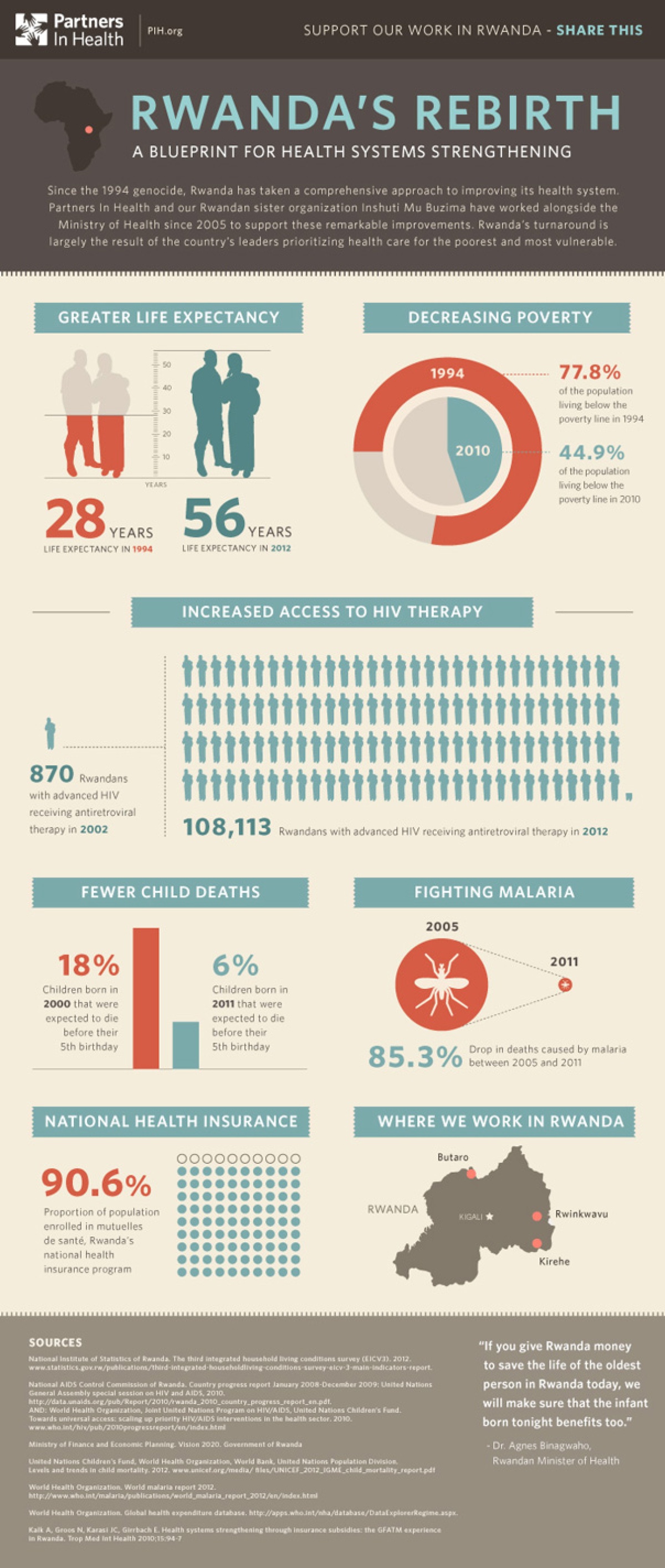Infographic: Health Care in Rwanda Improves Dramatically
Posted on Feb 25, 2013

In the past decade, deaths associated with HIV in Rwanda have plummeted by 78 percent—the largest such drop in the world. Meanwhile, the likelihood of a child dying before turning 5 fell by 65 percent. Between 2005 and 2010, more than 1 million Rwandans lifted themselves out of poverty. These are just a few of the many jaw-dropping statistics cited by Partners In Health Co-founder Dr. Paul Farmer and colleagues in a recent BMJ analysis that explores how Rwanda’s comprehensive approach to strengthening its health system after the 1994 genocide has transformed the country.
Rwanda’s turnaround is largely the result of its leaders prioritizing equity, human development, and health care for the poorest and most vulnerable. Since 2005, PIH and our sister organization Inshuti Mu Buzima (IMB) have partnered with the Rwandan government to improve access to health care in three rural districts: Butaro, Rwinkwavu, and Kirehe. We serve more than 800,000 people through 40 health centers and three hospitals—all public facilities.
A strong foundation of community health workers reinforces the health system and brings health care into every home. We work to support the Rwandan government’s efforts, including its remarkably successful National HIV Program. At the same time, we partner with the Ministry of Health (MOH) and local communities to develop low-cost, high-impact solutions that can be scaled up to improve health outcomes across the country.
Together with the MOH, we’ve built Butaro Hospital into a Center of Excellence in Cancer Care that is now a flagship center for medical care and education in east Africa. We laid the groundwork for a mentorship program that has dramatically improved nursing skills and is now being deployed countrywide. Our push to link communities with clinics and clinics with hospitals has greatly expanded access to health care.
But our commitment extends far beyond operating rooms and pharmacies. To counter the root causes of illness in Rwanda, we offer socioeconomic support to those in need, including transportation assistance, payments for school and health insurance fees, and microloans to start small businesses.
Of course, many challenges remain. Childhood malnutrition, high anemia rates among women and children, and neonatal mortality persist. Rwanda’s government is acutely aware of these issues and is collaborating with myriad stakeholders to effectively tackle them.
Still, as detailed in the BMJ article, Rwanda is poised to become the only country in the region on track to meet each of the health-related Millennium Development Goals by 2015. This isn’t a fluke, nor is it due to a stroke of good luck. It’s the result of a targeted and strategic approach.
Other countries struggling to improve health in the face of persistent poverty would do well to look toward Rwanda for insight.

